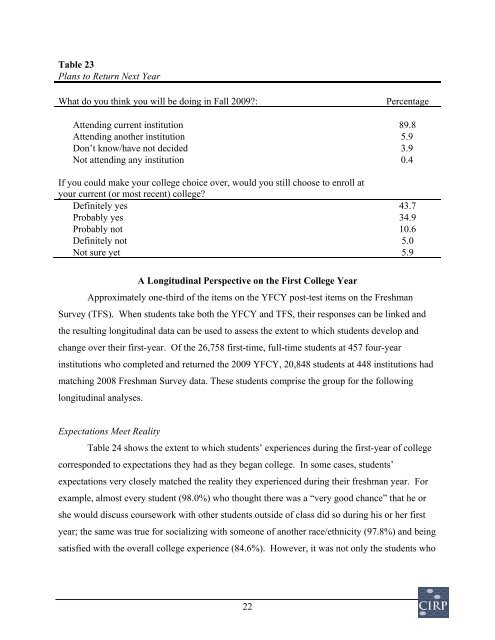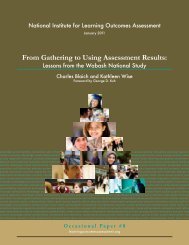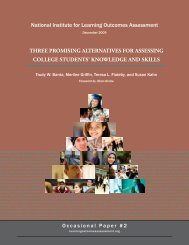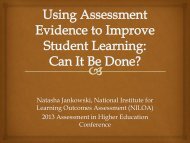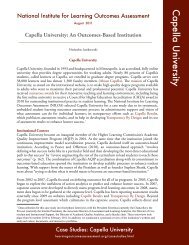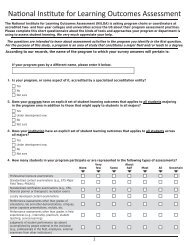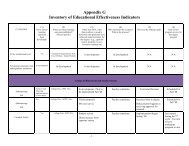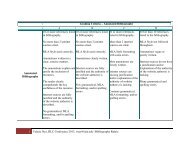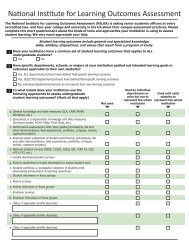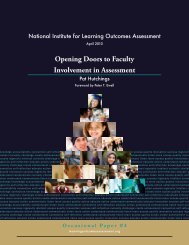Findings from the 2009 Administration of the Your First College Year ...
Findings from the 2009 Administration of the Your First College Year ...
Findings from the 2009 Administration of the Your First College Year ...
Create successful ePaper yourself
Turn your PDF publications into a flip-book with our unique Google optimized e-Paper software.
Table 23Plans to Return Next <strong>Year</strong>What do you think you will be doing in Fall <strong>2009</strong>?:PercentageAttending current institution 89.8Attending ano<strong>the</strong>r institution 5.9Don’t know/have not decided 3.9Not attending any institution 0.4If you could make your college choice over, would you still choose to enroll atyour current (or most recent) college?Definitely yes 43.7Probably yes 34.9Probably not 10.6Definitely not 5.0Not sure yet 5.9A Longitudinal Perspective on <strong>the</strong> <strong>First</strong> <strong>College</strong> <strong>Year</strong>Approximately one-third <strong>of</strong> <strong>the</strong> items on <strong>the</strong> YFCY post-test items on <strong>the</strong> FreshmanSurvey (TFS). When students take both <strong>the</strong> YFCY and TFS, <strong>the</strong>ir responses can be linked and<strong>the</strong> resulting longitudinal data can be used to assess <strong>the</strong> extent to which students develop andchange over <strong>the</strong>ir first-year. Of <strong>the</strong> 26,758 first-time, full-time students at 457 four-yearinstitutions who completed and returned <strong>the</strong> <strong>2009</strong> YFCY, 20,848 students at 448 institutions hadmatching 2008 Freshman Survey data. These students comprise <strong>the</strong> group for <strong>the</strong> followinglongitudinal analyses.Expectations Meet RealityTable 24 shows <strong>the</strong> extent to which students’ experiences during <strong>the</strong> first-year <strong>of</strong> collegecorresponded to expectations <strong>the</strong>y had as <strong>the</strong>y began college. In some cases, students’expectations very closely matched <strong>the</strong> reality <strong>the</strong>y experienced during <strong>the</strong>ir freshman year. Forexample, almost every student (98.0%) who thought <strong>the</strong>re was a “very good chance” that he orshe would discuss coursework with o<strong>the</strong>r students outside <strong>of</strong> class did so during his or her firstyear; <strong>the</strong> same was true for socializing with someone <strong>of</strong> ano<strong>the</strong>r race/ethnicity (97.8%) and beingsatisfied with <strong>the</strong> overall college experience (84.6%). However, it was not only <strong>the</strong> students who22


